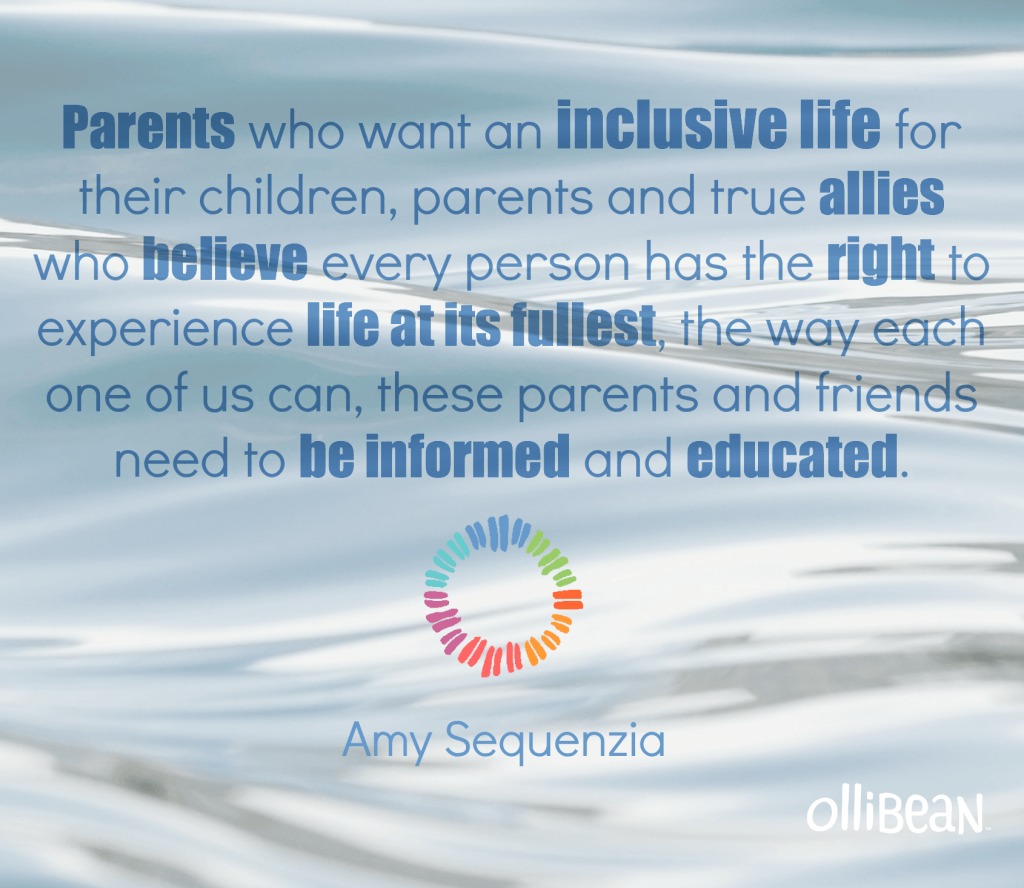
This is especially directed at parents, family members and all who spend a lot of time with disabled children. It also applies to adults, even if the way things happen when an adult is diagnosed or needs supports are different from how they happen with children. But we, disabled adults, also deserve to have supportive and informed people assisting us in navigating and participating in the world.
When a child is diagnosed with a disability, or born disabled, it is said that parents, and family members, grieve. That’s probably because the general perception of any disability is a negative one. Being disabled is likened to being “trapped”, “cursed”, “unfortunate”; disabilities are seen as undesirable, tragic and without hope for happiness.
It is understandable that a family that does not know much about disabilities will begin worrying before seeking the so needed education.
That’s why we need a change in attitudes. Instead of listening only to doctors and “experts”, seek adults with the same disability as your child – the real experts. Inform and educate yourself.
If you want to make sure your child is accepted and respected by the rest of the world, if you want your child to have opportunities, you need to connect with the ones who are just like your child, even if so different.
There are many proud disabled people that can give first hand information, and help families and friends by educating them about the realities of the disability.
This does not mean that things are going to be always easy and simple. It means that your child or the adult you are supporting will not be seen as someone who needs “fixing”.
Disabled people are not broken, defective “almost people”. Yet, the information families receive from doctors is usually a list of deficits, followed by a list of things that need fixing, plus another list of approaches that can “minimize the deficits” in the disabled child’s life.
Soon after, the doctor grades the child. This needless information is delivered with a variety of tone of voice, sympathy (or lack of), frowning, and different degrees of “hope” for a “better life”.
In my case, one doctor stated, sternly, that the only hope my parents should have for me was to find a “nice institution” to care for me, since I would never be able to learn anything.
One big problem is that most doctors are not educated on disabilities. To many of them, disabled equals imperfections, and they will try to “correct” those imperfections to make us look like or “function” as close to the perfect “normal” as they can.
And there is also the very real fact that many doctors and therapists make a lot of money selling treatments that will make us “better” and “desirable”. Parents are led to believe that if they don’t try everything the medical establishment proposes, they are not doing all that’s is best for their children.
Information. Education.
Parents who want an inclusive life for their children, parents and true allies who believe every person has the right to experience life at its fullest, the way each one of us can, these parents and friends need to be informed and educated.
The best way to do that is by seeking information from other disabled people – our lives are full of happiness, sadness, ups, downs, struggles and accomplishments, just like any other person’s life; by learning about the history of the Disability Rights Movement – facts are important if you want to fight for your child’s (or an adult’s) rights. History will tell you what to fight for without wasting all the energy you have. It will also help you educate others about the value of the lives of disabled people;
by seeking other disabled people as role models – many of us have been through events that you would not want your child to go through, or we have learned how to be proud of who we are, and how to deal with sometimes real debilitating issues. We can help you by sharing our experience. Your child is part of our tribe and we want him to succeed; by getting involved with all the issues surrounding disabilities – it is your child’s life now. Disability is not a tragedy but it is complicated sometimes. Involvement will forever be part of your life.
Keep the doctor’s lists only to debunk the wrong assumptions.
Seek any therapy only after listening to several sources, than ask yourself what each therapy’s goal is: to change, “fix” and teach compliance to your child, or to use the child’s assets to help her be the best her she can be?
When we educate ourselves, we learn to value every achievement and every person.
Seeking members of the disability tribe is free and will teach you that “hope” is not something to long for with pain and pessimism, but a certainty that only requires respect for the human being each disabled person is.
Changing attitudes toward disabled people is an act of activism that begins with respect, information from the ones who are the only true experts, and education.
This change in attitude is for your child, for the person you love, for all of us, and it can start with you.









Thank you, Amy. This is perfect.
I love this.